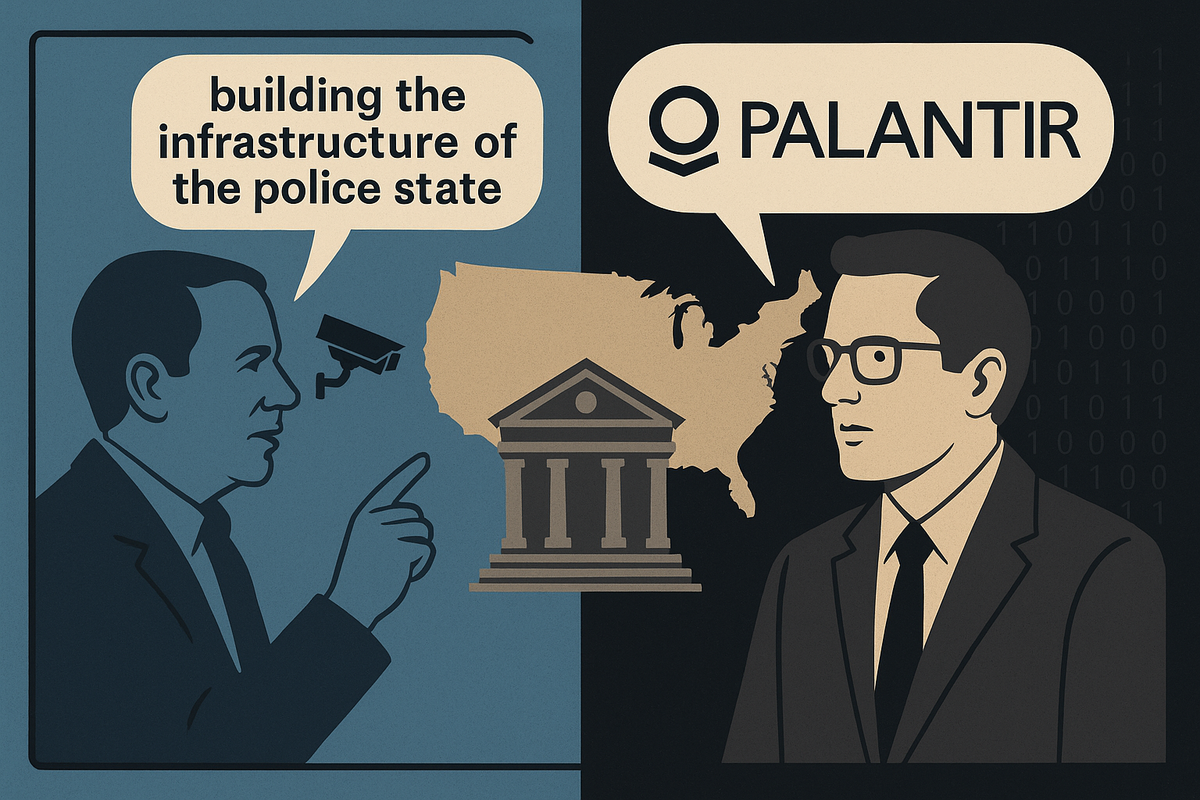Introduction: A Clash of Tech Titans
A public clash between two influential tech figures—Y Combinator co-founder Paul Graham and Palantir executive Ted Mabrey—has reignited debate over the ethical responsibilities of software companies involved with government operations. The conversation, which unfolded on X (formerly Twitter), centers around Palantir’s controversial $30 million contract with U.S. Immigration and Customs Enforcement (ICE).
As technologies increasingly intersect with matters of public policy, this exchange highlights the critical questions tech leaders, startups, and marketers must consider: Where does innovation end, and accountability begin?

The Controversial ICE Contract and ImmigrationOS
At the heart of the controversy is ICE’s deployment of Palantir’s data platform to develop ImmigrationOS—a tool designed to assist the agency in identifying deportation targets and monitoring “self-deportations” in near real-time.
Federal filings revealed the depth of this collaboration, sparking concern among privacy advocates and critics of the Trump-era deportation policies. While ICE describes the system as an operational asset, others view it as a step toward an increasingly opaque surveillance infrastructure.
This revelation drew the attention of Graham, a major voice in the startup community, who expressed concern over the ethical implications of Palantir’s work.
Paul Graham’s Strong Reproach
Paul Graham didn’t mince words. In a widely shared post, he wrote:
“It’s a very exciting time in tech right now. If you’re a first-rate programmer, there are a huge number of other places you can go work rather than at the company building the infrastructure of the police state.”
His message struck a chord within the startup ecosystem, sparking discussions about how developers and founders should approach offers from companies whose missions may raise ethical questions. Graham also pushed for a public commitment from Palantir not to build technologies that violate the U.S. Constitution—an appeal to corporate transparency and moral boundaries.
Palantir’s Counterpoint: A Matter of Life and Death
Ted Mabrey, Palantir’s global head of commercial, responded with a strongly worded post that emphasized the life-saving nature of Palantir’s work.
He referenced Palantir’s origin in national security, including Operation Fallen Hero, launched after the 2011 murder of U.S. Immigration Agent Jaime Zapata by the Zetas cartel. According to Mabrey, the emotional and operational intensity of these engagements shapes Palantir’s internal culture.
“When people are alive because of what you built, and others are dead because what you built was not yet good enough, you develop a very different perspective on the meaning of your work,” he said.
He likened the criticism to that of Google’s Project Maven, which caused employee walkouts in 2018 and led to Google stepping back from analyzing drone footage for the military—though the tech giant has since shown renewed interest in defense work.
A Culture of Belief: Inside Palantir’s Hiring Philosophy
Mabrey used the controversy to explain Palantir’s approach to recruitment:
“We hire believers. Not in the sense of homogeneity of belief but in the intrinsic capacity to believe in something bigger than yourself.”
Palantir emphasizes a resilient, mission-driven work culture. According to Mabrey, employees must be prepared to handle criticism “from all sides of the political aisle.” He urged those intrigued by the company’s mission to read CEO Alexander Karp’s book, The Technological Republic, which calls for a renewed partnership between Silicon Valley and the U.S. government.
The Bigger Picture: Ethics, Technology, and Governance
The Graham-Palantir debate is part of a broader reckoning within the tech industry about its responsibilities and values. As tools like AI, surveillance software, and predictive analytics become embedded in public institutions, the question isn’t just what we build, but why and for whom.
Startups, marketers, and founders need to be attuned to these issues—not only to make informed decisions about partnerships and clients but to shape the kind of future they want their innovations to support.
Why This Debate Matters for Entrepreneurs and Marketers
For those in the entrepreneurial space, this debate is more than a corporate squabble. It offers a crucial lesson in brand positioning, public trust, and long-term mission alignment.
As covered in several thought leadership pieces on Trenzest, today’s consumers and investors value purpose as much as product. Companies that fail to articulate or live by a clear ethical framework may find themselves alienated in a values-driven marketplace.
Additionally, this dialogue underscores the growing need for AI governance, a topic that continues to be a major theme in emerging tech trends (read more here).
Final Thoughts: The Role of Tech in a Changing World
The intersection of technology, ethics, and public service is complex. While Paul Graham raises valid concerns about surveillance and constitutional rights, Ted Mabrey highlights the urgent, real-world problems that Palantir aims to solve. These opposing views reflect a broader tension in modern tech: the balance between innovation and responsibility.
As stakeholders in the digital economy, we all play a role in shaping how technology is applied—and that includes the platforms we build, the clients we serve, and the conversations we spark.
Explore More with Trenzest
At Trenzest, we’re committed to unpacking the most pressing topics at the intersection of tech, business, and society. Whether you’re a founder seeking clarity, a marketer navigating change, or a tech enthusiast exploring the ethical frontiers of innovation, our blog offers fresh perspectives and actionable insights.




